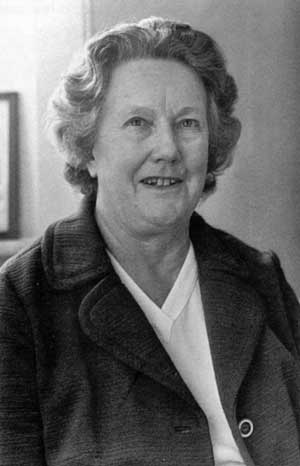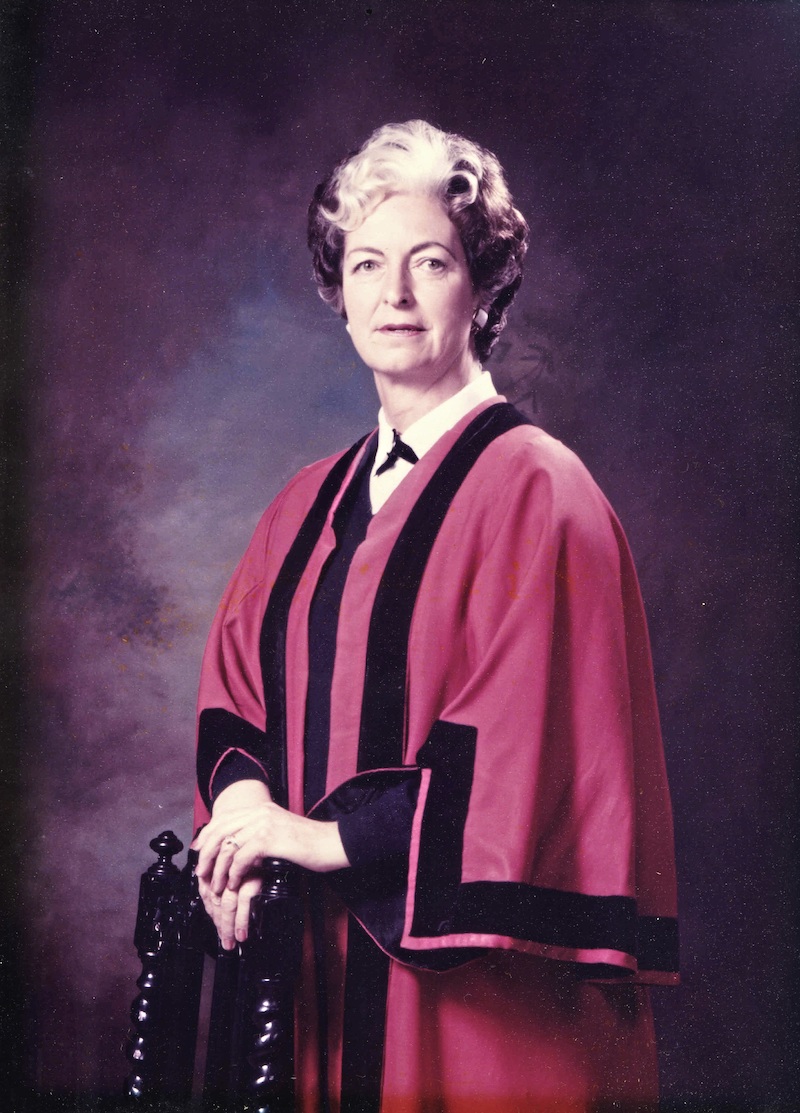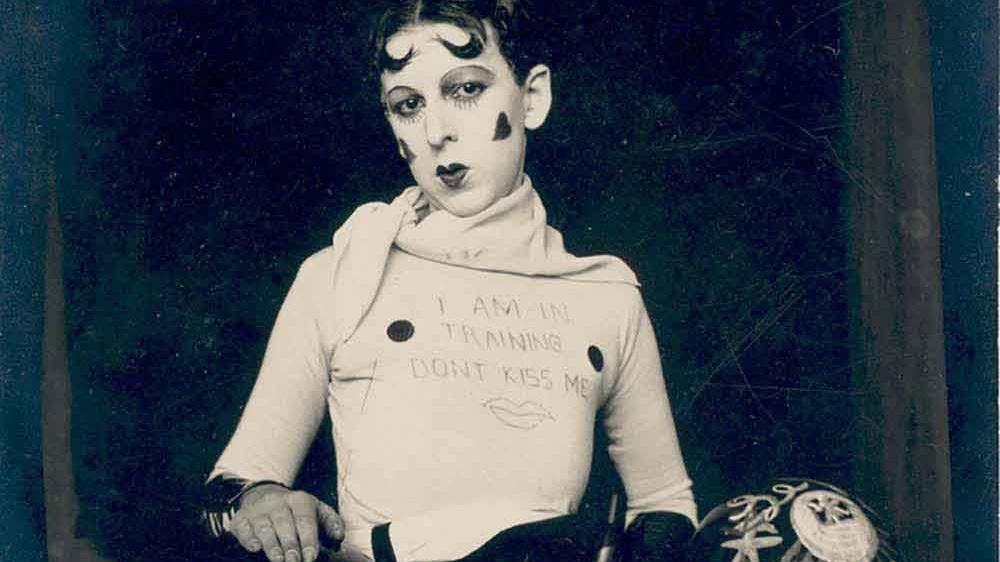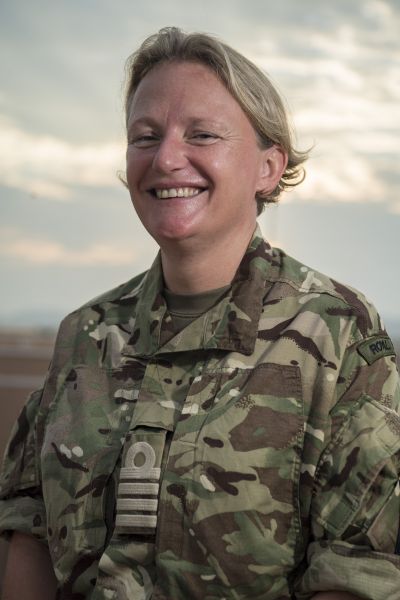


In honour of International Women's Day 2023, Express touches on some of the stories of the island's most groundbreaking women...
From artists and Jurats, to doctors and philanthropists... take a look back at some of the women who have provided the groundwork for many more women to lead the way in the island today...

Caroline Trachy broke the mould by being the first Jersey woman to stand for election. Caroline was barred several times from standing due to her being a woman, but through her persistence she eventually got the law changed.
She also founded the ladies' branch of the Jersey Political Association in October 1918 and, as its first President, wrote an open letter which spoke of women's role in WW1: "The women in this war have given their dearest and best, who have been taken with or without their consent, and as husbands, sons and brothers, in the sight of God, (if not of man) belong to their womenfolk, then those women in the future have every right to have a voice in the disposal of their dear ones."
The draft law enabling women over 30 to vote was brought to the States on 10 April 1919 and was debated over several days before being passed on 22 May and came into force that June.
Although Caroline was never elected to the States, she laid the path for Jersey’s first female politician, Ivy Forster, who was elected as Deputy for St. Helier in 1948, 20 years after the campaign to allow women candidates to stand.
This came just years after she was arrested for sheltering a Russian prisoner-of-war in her attic during the Occupation of the island.
Deputy Forster went onto become the first woman to top the poll when she was re-elected in 1951, but eventually lost her seat in 1954.

Gwyneth Huelin was originally a Deputy for St. Brelade and then St. Saviour, before becoming Jersey’s first female Senator in 1966.
She is perhaps best remembered for her work as President of the Public Health Committee, a position she held for 18 years.
Under her leadership, the General Hospital underwent a £15m modernisation project, which was completed shortly before she retired from the States. The ‘Gwyneth Huelin Wing’ was named in her honour.
She also oversaw the transformation of St. Saviour facilities, having noticed that they were inadequate, over-crowded and offered no privacy to patients.
She was awarded an MBE in the New Year Honours in 1966 and in 1981 she was awarded an OBE in the Queen’s Birthday Honours.

Jersey's first female Constable was remembered as a forthright and community-conscious "trail-blazer", who left a lasting impact on the island's education system, after she passed away aged 93 last year.
Mrs Le Feuvre was the island’s first female Constable and served the island for 19 years, first as a Deputy for St Lawrence from December 1978 and then as Connétable of the same parish from June 1984 until her retirement in February 2000.
During that time she was an active member of the Assembly and served on a variety of Committees, but is best remembered as Education President and it was during her tenure that the new Haute Vallée School was built to replace d’Hautrée.

Dr Barbara Myles was not only a respected Jurat, but a highly-regarded doctor, and a dedicated and enthusiastic charity worker.
Described as a formidable lady, an achiever who "got things done" in both her personal and professional life, her contribution to island life was rewarded when she was made an Officer of the Order of the British Empire in 2001.
In 1970, she was appointed as one of the 12 lay members of the Juvenile Court and held this post for the next ten years.
She was then invited to become a Jurat and decided to do so, mainly because of the lack of female Jurats. It was on her third attempt, in August 1980, that she became the first female Jurat in the Channel Islands. Jurat Myles also served on the probation panel and was a member, and later chairwoman, of the Prison Board of Visitors, both of which were honorary positions.
In March 1997, she was appointed as Jersey's first female Lieutenant-Bailiff, the swearing-in ceremony being an opportunity for thanks to be expressed for her 16 years' service as a Jurat, during which time it was said that her pragmatism and sensitivity in her judicial duties and her medical knowledge and experience had not only been of great value to the court but had won her the respect of all.
In 2002, she was appointed as relief coroner and despite a stroke in 2009, which left her disabled, continued in this role until 2011.
The stroke may have slowed her down, but she carried on doing everything she possibly could for as long as she could, only retiring from work in her early 80s.

French photographer Claude Cahun (born Lucie Renée Schwob) is best known for her highly-staged self-portraits in which she assumed a variety of androgynous performative characters, subverting gender norms through the visual aesthetics of Surrealism.
Her artistic work permeated many other mediums and much of it was delivered in collaboration with her partner, Marcel Moore (born Suzanne Malherbe).
Pictured: Claude Cahun (Lucie Renée Schwob) and Marcel Moore (Suzanne Malherbe) are buried in St. Brelade's Church's cemetery.
Originally from France, the pair relocated to Jersey in 1937 and become active resistance workers and propagandists during the German occupation.
However, their acts of rebellion eventually led to imprisonment for the pair and they were threatened with a death sentence.
Although this was never carried out, their their incarceration caused Cahun ill health until her death in 1954.

Louisa Gould, who ran a food shop in St. Ouen, was part of the resistance during the German occupation.
Together with her brother and sister, she hid away Russian slave workers who had escaped brutal work camps. Most famously, Louisa hid a Russian soldier, Feodor Buryi, known as “Russian Bill”, who became a p[art of the community. She reportedly said: “I had to do something for another mother’s son”.
Louisa also hid a radio in her bedroom and was known to pass on information from broadcasts to visitors to her shop.
Louisa’s home was searched by German forces and she was killed in a gas chamber at Ravensbrück concentration camp in 1945.
Her life was the inspiration for the 2017 film Another Mother's Son.

Florence Boot, one of the founders of Boots, was born in St Helier in 1863. She grew up helping her father sell books and stationery.
Florence met Jesse Boot when he was holidaying in Jersey. While Jesse had already founded Boots as a pharmacy when they married, Florence expanded the business to include toiletries, stationery, books and gifts - using her experience in Jersey. She introduced library counters where users paid 2d to borrow books.
Florence was passionate about the wellbeing of her employees, many of whom were women, starting social clubs and feeding them a hearty breakfast before they started their workday.
Florence was an important philanthropist who was passionate about the island, donating land for exercise and wellbeing - and many of these sites still exist today, such as Beauport Bay, Coronation Park, and the adjoining Millbrook Playing Field.
Millbrook in turn became the site of a Covid-19 field hospital in 2020.
A plaque honours Florence at her birthplace at 101 Halkett Place.
Lilian Grandin was Jersey's first female doctor. She went to China as a medical missionary,
A devout Methodist, she was born in St Helier at the end of the 19th century. She was educated at Jersey Ladies’ College and studied midwifery in London and eye diseases and tropical medicine in London. She sailed to China as a medical missionary, leaving Southampton in 1906.
She travelled by boat to Chaotung, Yunnan Province. She set up a leper clinic and nursed missionary Sam Pollard after he was attacked by a local tribe.
Lilian married the travel writer and journalist Edwin John Dingle but continued working. She returned to Jersey during the First World War and then returned to China. She died of typhus in China in 1924 - it is believed that she died after giving her medicine to another patient who needed it more.
The hospital Lilian established still treats patients today.

Anita Regal was Jersey's first female advocate.
She also founded Whiteley, a networking group for local businesswomen, in 1990, and was a popular and dedicated member of the island's Jewish community.
Having moved to the island in the late 50s, she went on to study at Manchester University, completing her law degree in 1964.
She was then sworn in as an Advocate of the Royal Court in August 1968.
Stephanie Nicolle was the first woman in Jersey to have held a Crown Officer role.
Nicolle was called to the bar in 1976, and then the Jersey Bar in 1978. She then became a Crown Advocate from 1986 to 1994, and was subsequently appointed HM Solicitor General, a role she kept until 2008.
Following this, she became Adjunct Professor of Immovable Property at Jersey's Institute of Law, then retired in 2012.

A Jersey woman made history last year by becoming the first ever woman appointed to the rank of Admiral in the Royal Navy.
Commodore Jude Terry OBE, who has served in the Navy for nearly 25 years, has been promoted to Rear Admiral, becoming the most senior woman ever given the role in the centuries-long history of the Royal Navy.
Commodore Terry (47) joined the Navy in 1997, spending the bulk of her career in Plymouth-based warships, including survey vessel HMS Scott and two spells with helicopter carrier HMS Ocean.
Her career has spanned the globe, with her role taking her to locations as wide ranging as the Gulf and Middle East, Indian Ocean, Far East and the Caribbean.
On 12-month second draft to HMS Ocean when she spent 10 weeks away in the Baltic and Gulf, and she also was responsible for working with the team producing Channel 4 documentary series ‘Warship'.
In addition to her work across various staff appointments through the years, Commodore Terry was awarded the OBE in the New Year’s Honours list in 2017 for her efforts during three years at the UK military’s operational hub, Permanent Joint Headquarters.

In 2022, Jersey saw the appointment of its first ever female Chief Minister, Kristina Moore, following an election in which more female Deputies than male were elected for the first time. Last year also saw the island get its second ever female Greffier, Lisa Hart, following the departure of Dr Mark Egan.
The year before, the island got its first female Government CEO, Suzanne Wylie.
Joining Kristina Moore in her Council of Ministers, meanwhile, is Deputy Elaine Millar, who was herself Jersey's first ever female Viscount.
These are just some of the amazing women to have made a difference in island history - we'd love to hear more stories.
Tag us on social media or email editor@bailiwickexpress.com to share.
Comments
Comments on this story express the views of the commentator only, not Bailiwick Publishing. We are unable to guarantee the accuracy of any of those comments.